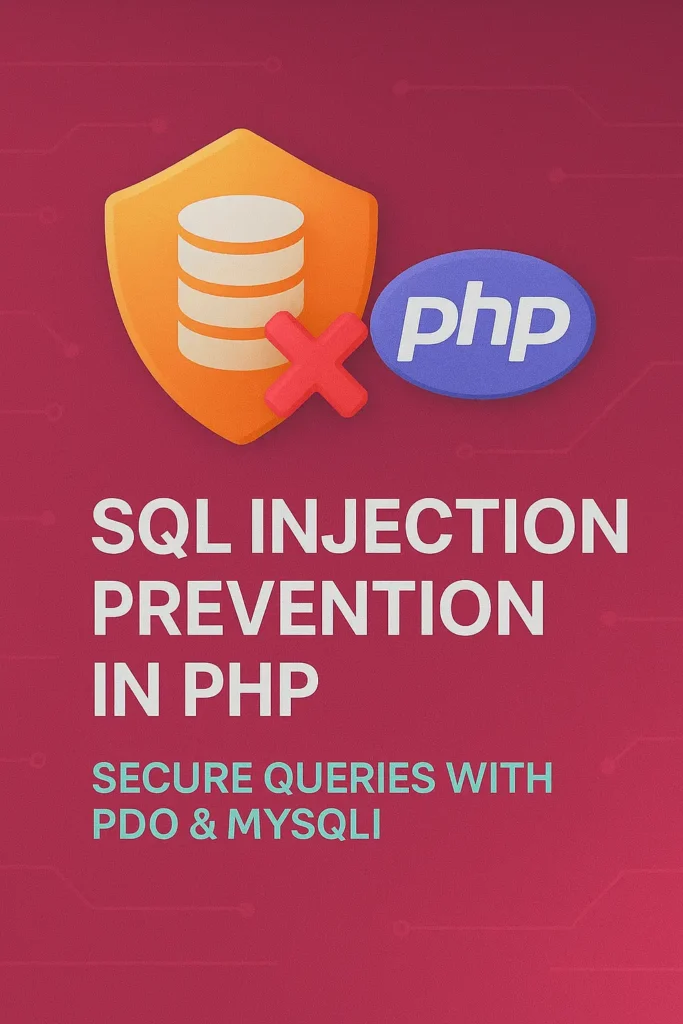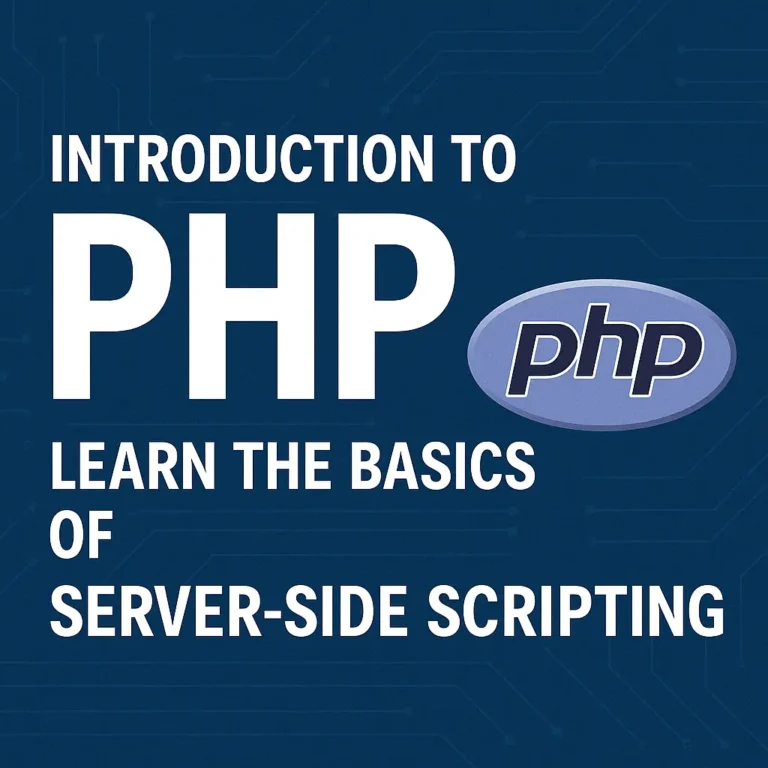PHP, being a widely used server-side scripting language for web development, is particularly vulnerable to SQL injection attacks if proper precautions are not taken. In this comprehensive guide, we’ll delve into the basics of SQL injection, explore common attack vectors, and discuss effective strategies for preventing SQL injection in PHP applications. Through detailed explanations and practical code examples, you’ll gain a solid understanding of SQL injection prevention techniques and learn how to fortify your PHP applications against this critical security threat.
Basics of SQL Injection
What is SQL Injection?
SQL injection is a type of security vulnerability that occurs when an attacker inserts malicious SQL statements into input fields or query parameters of a web application. These malicious SQL statements can manipulate the application’s database, retrieve sensitive data, modify database records, or even execute administrative commands.
Common Attack Vectors
SQL injection attacks can take various forms, including:
Classic SQL Injection:
Attackers exploit vulnerabilities in input validation to inject malicious SQL queries directly into the application’s database.
Blind SQL Injection:
Attackers exploit timing-based or error-based techniques to infer information about the database schema or data indirectly.
Second-Order SQL Injection:
Attackers inject malicious SQL payloads that are stored in the application’s database and executed later, often targeting other users who access the compromised data.
Preventing SQL Injection in PHP
Using Prepared Statements
Prepared statements, also known as parameterized queries, are one of the most effective defenses against SQL injection attacks. They allow you to separate SQL logic from user input, preventing attackers from injecting malicious SQL code into the query.
<?php
// Using prepared statements with PDO
$pdo = new PDO("mysql:host=localhost;dbname=mydatabase", "username", "password");
// Prepare a SQL statement with a placeholder
$stmt = $pdo->prepare("SELECT * FROM users WHERE username = ? AND password = ?");
// Bind parameters to the prepared statement
$stmt->bindParam(1, $_POST['username']);
$stmt->bindParam(2, $_POST['password']);
// Execute the prepared statement
$stmt->execute();
// Fetch results
$results = $stmt->fetchAll(PDO::FETCH_ASSOC);
?>
Using Parameterized Queries with MySQLi
MySQLi also supports parameterized queries, allowing you to securely execute SQL statements with user input.
<?php
// Using parameterized queries with MySQLi
$mysqli = new mysqli("localhost", "username", "password", "mydatabase");
// Prepare a SQL statement with placeholders
$stmt = $mysqli->prepare("SELECT * FROM users WHERE username = ? AND password = ?");
// Bind parameters to the prepared statement
$stmt->bind_param("ss", $_POST['username'], $_POST['password']);
// Execute the prepared statement
$stmt->execute();
// Get result set
$result = $stmt->get_result();
?>
Sanitizing User Input
While prepared statements offer robust protection against SQL injection, input sanitization can serve as an additional layer of defense. Sanitizing input involves validating and filtering user-supplied data to ensure it adheres to expected formats and does not contain malicious content.
<?php
// Sanitize input using filter_var
$username = filter_var($_POST['username'], FILTER_SANITIZE_STRING);
$password = filter_var($_POST['password'], FILTER_SANITIZE_STRING);
// Execute SQL query using sanitized input
$query = "SELECT * FROM users WHERE username = '$username' AND password = '$password'";
?>
Using ORM Libraries
Object-Relational Mapping (ORM) libraries such as Doctrine provide abstraction layers that shield developers from low-level SQL queries, reducing the risk of SQL injection vulnerabilities.
<?php
// Using Doctrine ORM
$user = $entityManager->getRepository(User::class)
->findOneBy(['username' => $_POST['username'], 'password' => $_POST['password']]);
?>
Best Practices
Prefer Prepared Statements: Use prepared statements with parameterized queries whenever possible to prevent SQL injection attacks.
Validate and Sanitize Input: Validate and sanitize user input to ensure it conforms to expected formats and does not contain malicious content.
Use ORM Libraries: Consider using ORM libraries to abstract away SQL queries and minimize the risk of SQL injection vulnerabilities.
Limit Database Privileges: Assign minimal privileges to database users to limit the impact of SQL injection attacks.
Conclusion
SQL injection remains a significant threat to the security of web applications, exposing sensitive data and undermining the integrity of databases. In this guide, we explored the basics of SQL injection, including common attack vectors and potential risks. We also discussed effective strategies for preventing SQL injection in PHP applications, such as using prepared statements, sanitizing user input, and leveraging ORM libraries. By implementing these best practices and staying vigilant against evolving security threats, you can safeguard your PHP applications against SQL injection vulnerabilities and protect the integrity and confidentiality of your data.
<?php
// Example PHP code demonstrating SQL injection prevention with prepared statements
$pdo = new PDO("mysql:host=localhost;dbname=mydatabase", "username", "password");
$stmt = $pdo->prepare("SELECT * FROM users WHERE username = ? AND password = ?");
$stmt->bindParam(1, $_POST['username']);
$stmt->bindParam(2, $_POST['password']);
$stmt->execute();
$results = $stmt->fetchAll(PDO::FETCH_ASSOC);
?>
<?php
// Example PHP code demonstrating SQL injection prevention with input sanitization
$username = filter_var($_POST['username'], FILTER_SANITIZE_STRING);
$password = filter_var($_POST['password'], FILTER_SANITIZE_STRING);
$query = "SELECT * FROM users WHERE username = '$username' AND password = '$password'";
?>
These PHP scripts illustrate SQL injection prevention techniques using prepared statements and input sanitization in PHP applications. By incorporating these strategies into your PHP projects, you can effectively mitigate the risk of SQL injection vulnerabilities and build robust and secure web applications.






